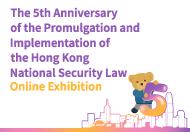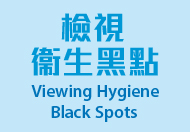FAQs
The following information explains in layman’s terms the frequently asked questions under the Hotel and Guesthouse Accommodation (Amendment) Ordinance 2020 and is used for general reference and information purposes only. The Office of the Licensing Authority (“OLA”) under the Home Affairs Department is dedicated to ensuring the accuracy of such information but there is no guarantee that up-to-date and accurate information is maintained at all times. For the most updated information, please refer to the relevant ordinance or other guidelines.
Download full set of Frequently Asked Questions (in PDF format)
(A) Background
1. What is the meaning of hotel or guesthouse?
Pursuant to the Hotel and Guesthouse Accommodation Ordinance (Cap. 349) (“the Ordinance”), premises are a hotel or guesthouse if the premises are held out as providing sleeping accommodation to any persons presenting themselves who are willing to pay a fee for the sleeping accommodation. If the mode of operation of any premises falls within the meaning of hotel or guesthouse under the Ordinance, the premises should apply for a hotel or guesthouse licence unless all accommodation in the premises is exclusively provided on the basis of a minimum period of 28 continuous days for each letting.
2. What are the major amendments in the Hotel and Guesthouse Accommodation (Amendment) Ordinance 2020 (“New Regime”)?
Major changes under the New Regime include -
- empowering the Hotel and Guesthouse Accommodation Authority (“the Authority”) to take into account relevant restrictive provisions in land documents and local residents’ views in the licensing process, and introducing a number of enhancement measures to better protect the lodgers and the public;
- introducing a “strict liability” offence and empowering the Authority to apply for search warrants to search unlicensed premises; and
- increasing the penalties for offences under the Ordinance, and empowering the Authority to apply for closure of premises in particular cases.
3. What requirements should be met under the New Regime?
They mainly include -
- No-use restriction requirement : an applicant must provide a written legal advice given by a legal practitioner (commonly known as “solicitor’s letter”) on whether there is a “restrictive provision” in the relevant deed of mutual covenant (“DMC”) or Government lease (if the premises have no DMC), prohibiting the premises concerned from being used as a hotel or guesthouse; for commercial purposes; or otherwise than for private residential purposes;
- Fit and proper requirement : an applicant or any related person in case of a body of persons should make a declaration on whether he/she has committed an offence under the Ordinance, or any other serious offence, or whether the applicant is an undischarged bankrupt, in liquidation or the subject of a winding-up order. The Authority should take into account the above when considering whether the applicant (including a body of persons) is a “fit and proper” person for issue of a licence;
- Local consultation : the Authority will rely on an independent advisory panel to conduct “local consultation” to collect views of affected persons in the consideration of a licence application. The applicant may be required to respond to queries or provide further information upon request by the panel; and
- Differentiation of “hotel licence” and “guesthouse licence” : guesthouses are prohibited from using the word “酒店” or “Hotel” in their business names. The restriction includes the name of guesthouse shown on the signboards of the premises, promotion advertisements, online advertisements, etc.
4. What enforcement measures against unlicensed hotels or guesthouses have been introduced in the New Regime?
The New Regime facilitates enforcement actions against unlicensed hotels and guesthouses by (i) introducing a “strict liability” offence; (ii) empowering the Authority new enforcement power; and (iii) increasing the penalties for relevant offences. The major items are as follows -
- if the premises are used as an unlicensed hotel or guesthouse, the owners and tenants of the premises (Persons with exclusive occupancy rights on the premises, rather than guests who patronize the relevant premises) will be held criminally liable according to “strict liability” offence;
- the Authority may apply to the court for a search warrant to allow enforcement officers to enter into, or break into, with reasonable force when necessary, a suspected premises to inspect and search for evidence;
- the Authority may apply to the court, upon the second conviction within 16 months of the offence of operating an unlicensed hotel or guesthouse or the new strict liability offence in respect of the same premises, to issue a closure order for the premises for 6 months; and
- for operating an unlicensed hotel or guesthouse, the maximum fine increases from $200,000 to $500,000 and imprisonment increases from 2 years to 3 years.
5. Where can an applicant find out relevant materials for the New Regime?
The relevant materials are uploaded to the website of OLA (www.hadla.gov.hk), including “A Guide to Licence Application under the Hotel and Guesthouse Accommodation Ordinance”, other guidelines under the “No-use restriction requirement”, “Fit and proper requirement” and “Local consultation”.
(B) Questions about no-use restriction requirement
6. What is no-use restriction requirement?
Premises under application should be free from a use restriction under the DMC or Government lease (if there is no DMC), i.e. there is no restrictive provisions under the DMC or Government lease (if there is no DMC) of the premises concerned. Restrictive provision means an express provision which prohibits the premises from being used (i) as a hotel or guesthouse; (ii) for commercial purposes; or (iii) otherwise than for private residential purposes.
7. What information and documents should an applicant be provided to satisfy the no-use restriction requirement when making an application for issue or renewal of licence?
The applicant should provide an original written legal advice given by a legal practitioner (commonly known as “solicitor’s letter”) to prove that there is no restrictive provision under the DMC or Government lease (if there is no DMC) of the premises concerned when making an application for issue or renewal of licence under the new regime for the first time. The original written legal advice will be kept by OLA. If the applicant fails to provide a solicitor’s letter when submitting the application, the application will be rejected.
8. What is a legal practitioner?
Legal practitioner means a barrister or solicitor as defined by section 2(1) of the Legal Practitioners Ordinance (Cap. 159).
9. What content should be included in a solicitor’s letter?
The written legal advice given by a legal practitioner should show the address of the premises under application and state that there is no restrictive provision prohibiting the premises from being used as (i) a hotel or guesthouse; (ii) commercial use; or (iii) purposes other than private residential purpose under the DMC or Government lease (if there is no DMC) of the premises concerned. The signature of the legal practitioner concerned and the issuance date of the legal advice should also be clearly shown. Separately, the applicant should provide the name of the legal practitioner and the legal firm as well as issuance date of the legal advice in the application form.
10. Is there a time limit for the issuance date of the solicitor’s letter? Can it be reused?
There is no time limit for the issuance date of the solicitor’s letter. The same solicitor’s letter can be reused. However, the applicant should declare to the best of his/her knowledge in the application form whether there is any change to the DMC of the premises concerned after the issuance date of the solicitor’s letter.
11. Can different guesthouses in the same building share the use of the same solicitor’s letter?
If the solicitor’s letter clearly shows that it is applicable to the address of the premises under application, or the floor or the whole building where the premises are located, OLA may consider accepting the practice of sharing the use of the same solicitor’s letter. The first applicant should provide the original copy of the solicitor’s letter.
12. How can the applicant search for the DMC or Government lease (if the premises have no DMC) of the premises?
Applicant can search for the land document (DMC or Government lease) records in the Land Registry through a fee-paying service of the Registry.
13. Is there any template of solicitor’s letter provided by OLA?
Given different circumstances of each application, OLA does not provide any template of solicitor’s letter. The applicant may check with relevant legal practitioner or legal firm for details or make reference to the Guidelines on No-use Restriction Requirement on our website (https://www.hadla.gov.hk/en/licensing_matters/related/index.html) for an example of written legal advice.
14. Does OLA have a list of eligible legal practitioners for reference of applicants?
OLA does not have a list of eligible legal practitioners. Applicant may enquire the legal firm.
15. How much does it cost for a solicitor’s letter?
OLA does not have information on the standard cost of written legal advice. Applicant may enquire his/her legal practitioner or legal firm for the cost that will be incurred.
16. Can a solicitor’s letter be replaced by a written proof certificated by the Incorporated Owner or others who are not a legal practitioner (e.g. public officers)?
Only written legal advice from a legal practitioner will be accepted by OLA.
(C) Questions about fit and proper requirement
17. What is fit and proper requirement?
The Authority should consider whether a person or any related person in case of a body of persons, is a fit and proper person to operate, keep, manage or otherwise have control of a hotel or guesthouse. The Authority should have regard to whether the person or related person –
- has been convicted of an offence under the Ordinance;
- has been convicted of an offence, other than an offence under the Ordinance, in Hong Kong or elsewhere and, in respect of the conviction sentenced to imprisonment for a term exceeding 3 months; or
- is an undischarged bankrupt, is in liquidation or is the subject of a winding-up order.
18. What is a related person in relation to the fit and proper requirement?
Related person, in related to a body of persons, means
- for a body corporate –
- a director of the body corporate;
- a company secretary of the body corporate; or
- a person concerned in the management of the body corporate;
- for a partnership –
- a partner in the partnership;
- a person concerned in the management of the partnership; or
- an office holder of the partnership; or
- for an unincorporated body other than a partnership –
- a person concerned in the management of the body; or
- an office holder in the body
19. What information and documents should an applicant/related person be provided to satisfy the fit and proper requirement?
The applicant or all related persons (Please refer to Q18 for the meaning of related person) should provide information and make a declaration on his/her convictions records and financial status in the application form (if applicable). They should each complete (i) an individual Personal Data Authorisation Form (Appendix III of the application form) and (ii) Consent Form (Appendix IV of the application form), together with (iii) one copy of their identity document for the purpose of checking relevant records with other government departments. Applicant or related persons (in case of a body of persons) should also state in the application form other factors which the Authority should take into account when determining whether they are fit and proper persons.
If all Personal Data Authorisation Form(s) and Consent Form(s) could not be submitted together with the application, the applicant or any related person (in case of a body of persons) should do so before the deadline set by the OLA. Otherwise, the Authority may refuse to issue the licence if the applicant or any related person (in case of a body of persons) fails to provide such documents.
If all Personal Data Authorisation Form(s) and Consent Form(s) could not be submitted together with the application, the applicant or any related person (in case of a body of persons) should do so before the deadline set by the OLA. Otherwise, the Authority may refuse to issue the licence if the applicant or any related person (in case of a body of persons) fails to provide such documents.
20. Is there any time limit for the conviction records of applicants for fulfilling the fit and proper requirement?
The Authority will consider the relevant conviction records of an applicant or any related person (in case of a body of persons) for 5 years preceding the date of application.
21. What information is needed to be furnished in Personal Data Authorisation Form and Consent Form if a related person is not a natural person?
There is no need to furnish information in Personal Data Authorisation Form (Appendix III of the application form) and Consent Form (Appendix IV of the application form) if a related person is not a natural person. The related person should still provide its information (i.e. name of related person, position held by related person in the body of persons and telephone no.) in the application form.
(D) Questions about local consultation
22. Is it necessary to conduct local consultation for all licence applications?
Before approving an application for issue or renewal of licence, the Authority should satisfy that a consultation has been conducted in respect of the application according to the Ordinance, unless the use of the premises as a hotel or guesthouse is permitted (whether because of a permission for the premises or for the building or area in which the premises are situated) according to (a) a draft plan or an approved plan within the meaning of the Town Planning Ordinance (Cap.131); or (b) a permission granted in respect of such a plan under the Town Planning Ordinance.
(E) Questions about the differentiation of “hotel licence” and “guesthouse licence”
23. When will the measure of differentiation of “hotel licence” and “guesthouse licence” come into operation?
For the application for new licence or licence renewal under the New Regime, the Authority may impose a licence condition on a guesthouse licence to prohibit guesthouses from using the word “酒店” or “hotel” in their business names. This naming restriction generally includes the name of guesthouse shown on the signboards of the premises, promotion advertisements, online advertisements, etc. It is not applicable to the licence approved in accordance with old licensing regime.
24. Is it necessary for the guesthouse using the word “酒店” or “hotel” in its business name to amend the business name shown on the business registration certificate (“BRC”) and the third party risks insurance policy before applying for licence renewal under the New Regime?
The use of the word “酒店” or “hotel” in the business name of a guesthouse is prohibited under the New Regime. Under such circumstances, affected licensees are recommended to make relevant arrangements in good time in order to meet the requirements. Moreover, the business name shown on both BRC and the third party risks policy should be identical to the business name of the guesthouse. The applicant should provide copies of such documents upon collection of licence.
25. Besides updating the business name shown on BRC and the third party risks insurance policy, what follow-up actions should affected licensee be taken for compliance with the requirement on naming restriction?
The affected licensee should take all possible measures to amend the business name of the guesthouse shown on the signboards of the premises, business name cards, leaflets, promotion advertisements, online advertisements, etc., for compliance with the requirement on naming restriction. In addition, the licensee should also ensure that business name shown on both BRC and the third party risks policy should be identical to the business name of the guesthouse.
(F) Questions about licence application under the new regime
26. What are the requirements for issue of a new licence under the New Regime?
An application for a new licence should comply with the no-use restriction in land documents, suitability (i.e. building and fire safety) and, fit and proper requirements. Local consultation should also be conducted where necessary.
27. What are the requirements for licence renewal under the New Regime?
An application for licence renewal should comply with the no-use restriction requirement, suitability requirement, fit and proper requirement, and operation requirement (e.g. whether a provision under the ordinance or a licence condition has been contravened, whether an Authorized Person’s certificate has been submitted within the period required, etc). Local consultation should also be conducted where necessary.
28. When should an application for licence renewal be made under the New Regime?
An application for licence renewal must be made within the period beginning 6 months before, and ending 3 months before, the end of the licence period of the licence (application period). It could not be made too early or too late.
29. What is the arrangement under the New Regime if a renewal application is not submitted within the application period?
An application for licence renewal may not be accepted if it is not made within the application period unless the Authority considers that there is a good reason for doing so.
30. If the applicant submits a renewal application within the application period, can the guesthouse continue to operate in case the application is pending as at the end of its licence period?
Pursuant to section 12H(4) of the Ordinance, if an application for licence renewal has been made within the application period but is still pending as at the end of the licence period, the license remains in effect until the Authority makes a decision. Under such circumstances, the licensee should ensure that the third party risks insurance policy is in force.
31. If the applicant submits a renewal application beyond the application period but the Hotel and Guesthouse Accommodation Authority (“the Authority”) considers that there is a good reason for doing so, can the guesthouse continue to operate if the application is pending as at the end of the licence period?
The protection provided under section 12H(4) of the Ordinance does not apply to cases in which the application for licence renewal is made after the application period. The licensee should not continue the business of the hotel/guesthouse concerned after the licence expired and before the application for licence renewal is approved.
(G) Questions about licence period
32. If an applicant applies for a multi-year licence under the New Regime, what factors will the Authority consider in determining the licence period?
Hotel/guesthouse licence with a validity period exceeding 12 months will only be issued to applicant having “relevant experience” of supervising the operation, keeping, management and control of licensed hotel/guesthouse in the past 12 months. The applicant at the same time has not breached any licensing condition of any hotel(s)/guesthouse(s) under control.
33. What are the criteria for issuing a licence with a validity period exceeding 36 months?
For the application for a licence with validity period exceeding 36 months, the hotel/guesthouse premises should be purposely built in that they were designed and constructed as a hotel/guesthouse, the use of which has also been approved by the Building Authority, either as shown in the Occupation Permit or as indicated in the alterations and additions plans approved by the Building Authority. The completion certificate for such alterations and additions works should have been acknowledged by the Building Authority.
A licence with a validity period exceeding 36 months could be issued on condition that the licensees are required to submit an annual “Authorized Person’s Certificate” in respect of the building and fire safety of the premises, certifying that since the date upon which the licence was issued or, since the immediate previous anniversary of the licence, the hotel or the guesthouse –
A licence with a validity period exceeding 36 months could be issued on condition that the licensees are required to submit an annual “Authorized Person’s Certificate” in respect of the building and fire safety of the premises, certifying that since the date upon which the licence was issued or, since the immediate previous anniversary of the licence, the hotel or the guesthouse –
- has not undergone any substantial alteration by reference to the latest plan deposited with and agreed to by the Authority;
- has been operated, kept, managed, or otherwise controlled by the licensee as a hotel or guesthouse in a way that does not contravene any of the conditions of the licence;
- has been maintained in a proper condition with regard to building and fire safety.
(H) Questions about transfer of licence
34. What are the major amendments to application for licence transfer under the New Regime?
Hotel/guesthouse licence with a validity period exceeding 12 months will only be issued to applicant having “relevant experience” of supervising the operation, keeping, management and control of licensed hotel/guesthouse in the past 12 months. The applicant at the same time has not breached any licensing condition of any hotel(s)/guesthouse(s) under control.
(I) Other information and enquiries
35. What is the fee for the issue or renewal of a licence?
The fee for a licence will depend upon the number of rooms of the hotel or guesthouse and the validity period of the licence. Please refer to the current fee schedule uploaded onto the OLA website (www.hadla.gov.hk/en/licensing_matters/hotels/fees.html).
36. Where can the application forms for the issue, renewal and transfer of a licence be obtained?
Application forms for the issue (HAD 133), renewal (HAD 140A) and transfer (HAD 141) of licence can be downloaded from the HAD Homepage (www.had.gov.hk). They can also be obtained free of charge from OLA.
37. Where can the applicant submit the application forms for the issue, renewal and transfer of licence?
The applicant can submit relevant application forms to OLA in person or by post. The address of the OLA is 10/F, 14 Taikoo Wan Road, Taikoo Shing, Hong Kong. Its service hours are from 9 a.m. to 6 p.m. on Monday to Friday (except public holidays).
38. How can the public contact OLA to enquire about the issuance of licences?
For enquiries, members of the public can contact OLA through the following means –
| General issues | Enquiry telephone : | 2881 7034 |
|---|---|---|
| Email address : | hadlaenq@had.gov.hk | |
| Licence requirements and local consultation | Enquiry telephone : | 3107 3021 |
| Email address : | hadlaapu@had.gov.hk |


























.gif)





